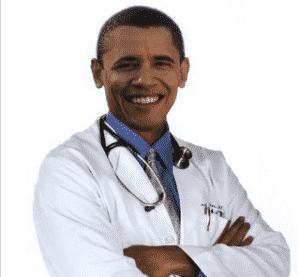Why millennials have abandoned Obama
By Dana Milbank, Published: March 14
The day before the Iowa caucuses in 2008, I wrote about the massive crowds of young people at Barack Obama rallies, noting that his candidacy would collapse “if they don’t show up.”
The next night, after Obama’s victory celebration in Des Moines, Obama strategist Steve Hildebrand spotted me in a crowd. “The kids showed up!” he said fiercely.
They did. But where are they now?
An army of 15 million voters under 30 swept Obama past Hillary Clinton and John McCain and to the presidency in 2008. More than 12 million helped him return in 2012. But now his presidency is on the line — and the Obama youth are abandoning him in his hour of need.
The administration announced last week that only 1.08 million people ages 18 to 34 had signed up for Obamacare by the end of February, or about 25 percent of total enrollees. If the proportion doesn’t improve significantly, the result likely will be fatal for the Affordable Care Act.
The administration had said it needed 40 percent of registrants in the health insurance exchanges to be young adults, or about 2.7 million of the expected 7 million total. Overall enrollment is also below target. But the alarming shortcoming is the number of young participants, which would make the insured population older and sicker and the program too expensive.
This week saw the release of Obama’s sit-down with comedian Zach Galifianakis, of “The Hangover” fame, to encourage the young to join the Obamacare exchanges. It was good comedy (the host, in the White House Diplomatic Reception Room, rolled up his sleeve to show Obama his “spider bites”), and according to the White House it had the desired result: a boost in traffic to HealthCare.gov. Yet the fact that Obama sought Galifianakis’s help was an indication of how much the president’s standing has slipped among young Americans. Six years earlier, he had been a demigod among that demographic.
What went wrong? The president and his aides failed to keep his youth movement engaged. But part of the problem also is the inability of the millennial generation to remain attached to a cause. The generation that brought Obama to power is connected online but has no loyalty to institutions — including, it turns out, the Obama White House.
In 2008, “the level of innovation and engagement in the election, especially the primaries, was amazing, but then the level of engaging them during the administration was extremely disappointing,” says Peter Levine, a Tufts University professor who specializes in youth civic involvement. “He had a potential army for legislative success and implementation, but the Obama administration did not do that. At a critical moment in the first term, they did not turn to them. . . . They got rapid youth demobilization.”
Young voters, after playing a big role in the campaign, became little more than an e-mail list for the White House and Obama’s Organizing for Action group. Then came health-care reform. The millennials, very liberal overall, saw Obama’s plan as too timid; they were disillusioned by his failure to fight for the “public option” of government-run health plans.















